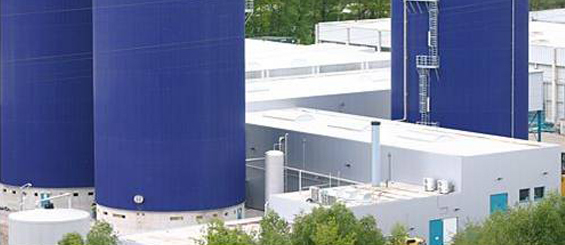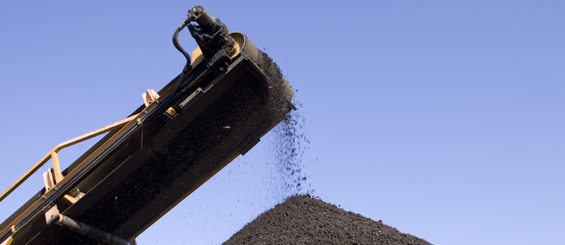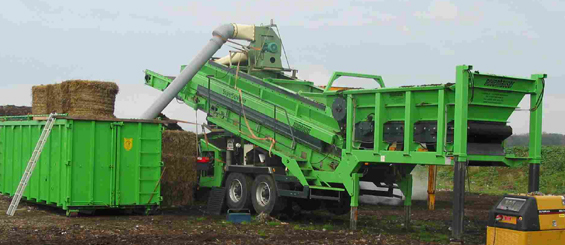Adverts
Suitable applications for compostable packaging
Certified compostable products are suitable for a range of applications such as primary packaging, carrier bags, tableware (plates, cups etc.) and bags for separate collection of biowaste. Wherever such products are used it is important to ensure that they are being used for the benefit of the whole system i.e. those involved in biowaste collection and recovery, and the end-user of the compost.
Examples of compostable packaging and plastics are now very far reaching with ever more multi-layer / complex structures acheiving certified compostable status. A few key examples include:
Compostable bags for Garden waste collection
Over recent years, garden waste collections using wheeled bins have become wide-spread across the UK yet many of the schemes are only available in certain areas. Restricted access to such collections has an impact in terms of the amount of biodegradable waste going to landfill but also to residents who do not receive the service who can feel disgruntled. There are many factors which limit where such collection schemes can be implemented including: access to gardens e.g. steps, lack of storage space, collection vehicle access down narrow or dead-end streets and cost. Certified compostable garden waste sacks can help bridge this gap.
Compostable liners for food waste collection
Research is showing that using a kitchen caddy can help substantially increase participation and recovery in food waste collection systems. By using a compostable liner in conjunction with the caddy, participation can be higher and recovery rates much greater than systems without liner.
Compostable packaging for fresh produce
Flexible film, particularly film which is 'contaminated' with fresh produce is particularly difficult to collect and recycle. Given the synergies between fresh produce and its packaging, a number of large retailers such as Sainsbury's is moving towards compostable packaging for it's organic produce ranges. Important benefits arethe reduced reliance on fossil based resources to produce the packaging and thatthe customer can home compost the packaging rather than throw it qway. A further important benefit relates to 'Back-of-Store' waste is one of the largest components of the organic fraction of commercial waste and is difficult to treat biologically due to the need to depackage the organics produce from the plastic food. However by using certified compostable / biodegradable packaging, the whole fraction can be sent for biological treatment without pre-treatment leading to cost-savings all-round.
Compostable carrier bags
In the UK, the drive to go plastic bag free has been led by Rebecca Hosking, a BBC camera woman from Modbury in Devon. Having seen the ecological damage done by discarded plastic bags across the world, in particular to ocean life, Rebecca persuaded local shopkeepers to stop providing free plastic carrier bags and instead to sell reusable cotton bags. Whilst this proved successful, shopkeepers found that customers who forgot their cotton bags still needed an alternative. After a period of extensive research, they decided that compostable bags were the environmentally best choice. Since Modbury went plastic bag free on 1 May 2007, over 100 towns and cities - including London - have pledgedto take a similar path.
A pivotal part of the compostable carrier bag philosophy is that they are first reused as carrier bags and then used as a collection receptacle for food waste prior to composting (home or industrial). In some cases, the user of the compostable packaging or plastics product is also the compost producer. For example, the Co-operative Group has recently introduced a home compostable carrier bag that can be reused as a carrier bag and then be further reused for the collection of vegetable kitchen waste and finally home composted with its contents.
Compostable table-ware
Outdoor events and places such as cafeterias where large numbers of people eat and drink in a short space of time are notoriously difficult to achieve high levels of recycling in. However, if all the receptacles which come into contact with food are made compostable then with the right communication, the composter can have an extremely contaminant free feedstock. There are a number of benefits from this system and events such as Glastonbury are already instigating policies requiring traders to use compostable tableware. Like most compostable items, the key benefits do not come from the item itself, but rather those associated with the role it plays in enabling a clean, completely compostable material stream. The life cycle cost-benefit implicationsare improved in the direction of benefits.
A number of the Association for Organic Recycling's members supply biodegradable and compostable materials.Click onMembership Directory text to view.
The Association for Organics Recycling has worked with The Green Alliance on their "Closing the Loop" project which looked at compostable packaging.
Examples of compostable packaging and plastics are now very far reaching with ever more multi-layer / complex structures acheiving certified compostable status. A few key examples include:
Compostable bags for Garden waste collection
Over recent years, garden waste collections using wheeled bins have become wide-spread across the UK yet many of the schemes are only available in certain areas. Restricted access to such collections has an impact in terms of the amount of biodegradable waste going to landfill but also to residents who do not receive the service who can feel disgruntled. There are many factors which limit where such collection schemes can be implemented including: access to gardens e.g. steps, lack of storage space, collection vehicle access down narrow or dead-end streets and cost. Certified compostable garden waste sacks can help bridge this gap.
Compostable liners for food waste collection
Research is showing that using a kitchen caddy can help substantially increase participation and recovery in food waste collection systems. By using a compostable liner in conjunction with the caddy, participation can be higher and recovery rates much greater than systems without liner.
Compostable packaging for fresh produce
Flexible film, particularly film which is 'contaminated' with fresh produce is particularly difficult to collect and recycle. Given the synergies between fresh produce and its packaging, a number of large retailers such as Sainsbury's is moving towards compostable packaging for it's organic produce ranges. Important benefits arethe reduced reliance on fossil based resources to produce the packaging and thatthe customer can home compost the packaging rather than throw it qway. A further important benefit relates to 'Back-of-Store' waste is one of the largest components of the organic fraction of commercial waste and is difficult to treat biologically due to the need to depackage the organics produce from the plastic food. However by using certified compostable / biodegradable packaging, the whole fraction can be sent for biological treatment without pre-treatment leading to cost-savings all-round.
Compostable carrier bags
In the UK, the drive to go plastic bag free has been led by Rebecca Hosking, a BBC camera woman from Modbury in Devon. Having seen the ecological damage done by discarded plastic bags across the world, in particular to ocean life, Rebecca persuaded local shopkeepers to stop providing free plastic carrier bags and instead to sell reusable cotton bags. Whilst this proved successful, shopkeepers found that customers who forgot their cotton bags still needed an alternative. After a period of extensive research, they decided that compostable bags were the environmentally best choice. Since Modbury went plastic bag free on 1 May 2007, over 100 towns and cities - including London - have pledgedto take a similar path.
A pivotal part of the compostable carrier bag philosophy is that they are first reused as carrier bags and then used as a collection receptacle for food waste prior to composting (home or industrial). In some cases, the user of the compostable packaging or plastics product is also the compost producer. For example, the Co-operative Group has recently introduced a home compostable carrier bag that can be reused as a carrier bag and then be further reused for the collection of vegetable kitchen waste and finally home composted with its contents.
Compostable table-ware
Outdoor events and places such as cafeterias where large numbers of people eat and drink in a short space of time are notoriously difficult to achieve high levels of recycling in. However, if all the receptacles which come into contact with food are made compostable then with the right communication, the composter can have an extremely contaminant free feedstock. There are a number of benefits from this system and events such as Glastonbury are already instigating policies requiring traders to use compostable tableware. Like most compostable items, the key benefits do not come from the item itself, but rather those associated with the role it plays in enabling a clean, completely compostable material stream. The life cycle cost-benefit implicationsare improved in the direction of benefits.
A number of the Association for Organic Recycling's members supply biodegradable and compostable materials.Click onMembership Directory text to view.
The Association for Organics Recycling has worked with The Green Alliance on their "Closing the Loop" project which looked at compostable packaging.
Members' Area
Become a Member!
Join the Organics Recycling Group at the Renewable Energy Association by clicking below.





.jpg)


